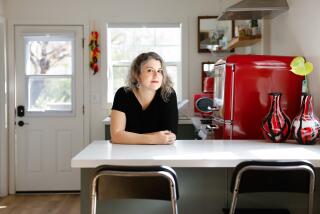Kept awake by neighborâs lights
Question: I live in a town house complex where all the units have indoor open-air atriums. My next-door neighborsâ unit directly abuts mine, and the owners use their atrium for growing some exotic plants. Theyâve got a lighting system switched on 24 hours a day inside their atrium. The atriumâs ambient light keeps me awake at night and causes distress. Iâve asked them to turn the lights off at night but they responded: âSleep in a different bedroom.â
The same neighbors have an automatic motion detector light on their exclusive-use patio aimed at the common courtyard and pool. Because of the foot traffic, it is often on most of the night. The board says this isnât an association problem.
My neighbors are on-again, off-again board directors who pride themselves on being community leaders. I try to reason with them, but their response is âmove.â
The neighbors have sabotaged my unit and my car in an attempt to divert my attention away from their lights. They also have been instrumental in getting the board to fine and penalize me for imaginary âviolations.â What can I do?
Answer: Unit-related atriums are typically considered âexclusive useâ common areas, meaning that use is exclusive to the titleholder and not available for use by others. Unless your associationâs Covenants, Conditions, and Restrictions state otherwise, under Californiaâs Civil Code Section 1351(i) âexclusive useâ is for one or more persons but fewer than all of the titleholders and is typically adjacent to, or shares a boundary with, other ownersâ units. However, âexclusive useâ does not mean âuse to interfereâ with a neighborâs quiet enjoyment of his own unit.
Although the board may not have much control over the exclusive use area in question, it does have control over how an ownerâs specific use of that area affects other homeowners. A boardâs failure to act is a breach of its duty owed to you to ensure the quiet enjoyment of your property.
Fines by associations must be consistent with a previously published schedule that was distributed to all titleholders. The fines and the reasons for them must be detailed. Owners against whom fines have been levied have the opportunity to challenge those fines before the board by requesting a meeting.
If you believe those fines have been improperly levied, challenge them in writing and demand a meeting with the board. Civil Code Section 1363 outlines the procedures that allow an association to penalize owners and the remedies available to those challenging those fines.
To try to resolve these issues by seeking mediation with the unit owner and even the board, contact the Los Angeles city attorneyâs Dispute Resolution Program at (213) 485-8324. There is no fee for the participants.
If youâve exhausted your internal and administrative options with the board and the owner, take the titleholder to Small Claims Court, alleging the lights are a nuisance. Be prepared to prove how the nuisance equates to the lost use of your property. If the court agrees, it can order certain parameters for the use of those lights.
Your neighborâs comments about sleeping in a different bedroom or moving are the types of comments that courts tend to find inflammatory and indicative of liability in a nuisance context.
If you can establish that your neighbors are responsible for the damage to your car, you can include that in your lawsuit and ask to recover money for that damage.
Send questions to P.O. Box 10490, Marina del Rey, CA 90295 or e-mail noexit @mindspring.com.

